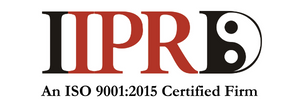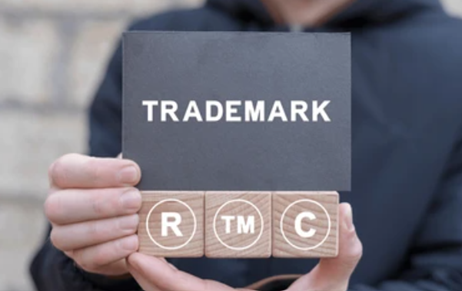In the vast field of intellectual property, few ideas strike a balance between private rights…
IPL (Indian Premier League) And IPR (Intellectual Property Rights)
People of India see cricket not only as the most popular sport in India but also they follow it as a religion which accounts for such great success of IPL tournaments in India. There is a lot of money invested and involved in organizing IPL and the role played by IPR in making it a success across the world can’t be ignored but certainly Indians don’t give much heed to the Intellectual Property Rights[1] whose omnipresence can be noticed all over the field whether it is brand name, team name, team logo, slogans, tag-lines used/advertised by various IPL teams important role in increasing the popularity of a team. These trademarks are registered and protected under Trademarks act, 1999. Today it is universally accepted fact that the trademarks play more important role as compared to the dogmatic view that trademarks are just symbols to distinguish goods belonging to a person from another person, TM has now evolved as an agent of creating good will of the particular brand and contribute greatly in a brand’s business by helping them in establishing their brand value[2]. Trademarks are well thought of artistic symbols which are developed after rigorous analysis of the psychological effect it would have on people’s minds.
Many such trademarks can be seen in merchandise of various teams such as t-shirts, caps, shoes, etc. But as these merchandise are produced to promote a particular team, the sponsors supporting them and to make a good business out of it for which these are sold at high prices which can be afforded by only very few people. Taking advantage of this gap between a major portion of population, their desire to wear the merchandise of their favorite team or players and weak enforcement of TM laws in the country, many people get into business of producing and selling such fake copies (nearly perfect visual imitation) of these merchandises. The TM owners also don’t make much effort to stop such practices, the reason could be that they are confident of the fact that their target population would only purchase the official merchandise and even if some people wear fake t-shirts it will also in a way increase the popularity of the particular team amongst people.
Street vendors selling (fake) T-shirts of these teams can be commonly seen on the streets of India. While a purchaser won’t get confused about the originality of the t-shirts and most of the times he will be sure about the absence of any kind of relationship between the T-shirts being sold to them and the official teams (Although the reason for purchasing them would be their visual similarity to the official merchandise) but there is a great ‘likelihood of confusion’ regarding its association with the TM owner, to a third person that can certainly have an adverse effect on a person’s choice to buy the original stuff.
One such example is; when the company did not even have a single store opened in the city, t-shirts with a perfect imitation of ‘ed-hardy logo’ were easily found hanging on the street vendors’ shops[3], the people were actually turned off due to this fact and many decided not to purchase the original apparel from the store when later the official stores were opened in the city, the same also has been depicted in a movie scene in ‘chance pe dance’ where school kids are shown raising doubts regarding the originality of ed-hardy t-shirt worn by Shahid.
These practices fall under the concept of ‘passing off’[4] which is free riding on someone else’s goodwill by misrepresenting one’s goods as that of others. This also leads to dilution of the original mark as it reduces its distinctiveness.
In the arsenal vs Mathew heed[5], selling unofficial memorabilia and souvenirs carrying the TM of Arsenal football club for over 30 years was held by the ‘England and Wales Court of Appeal’ to infringe the trademark rights of the TM owner. The question before the court was ‘whether trade mark use was necessary for infringement of a trade mark?’ Which the court answered in negative and held that The use of the Arsenal Marks on the goods in question would jeopardize the ability of the trade marks to guarantee origin.”
The above mentioned judgment if followed in India would result into a harsh blow upon every such person who in some manner is involved in producing, distributing or selling such unofficial merchandise but as a matter of fact India has not seen a single case on such subject matter. Since, section 29(2)(c) clearly lays down that, “a registered TM is infringed by a person who, not being a registered proprietor or a person using by way of permitted use, uses in the course of trade, a mark which because of its identity with the registered TM and the identity of the goods or services covered by such registered TM is likely to cause confusion on the part of public, or which is likely to have an association with the registered trade mark.”
“Sub-section (3) of the same section also says that in any case falling under cause (c) of sub-section (2), the court shall presume that it is likely to cause confusion on the part of the public.” Therefore it can be anticipated that if such case arises in future, the Indian courts are likely to follow the judgment of their foreign counterpart. But since the Indian courts can’t take suo moto action against such practices, nothing much is likely to happen in this regard anytime soon.
Author: Koonal Tanwar, LL.M., NALSAR University of Law, Hyderabad intern at Khurana & Khurana, Advocates and IP Attorneys. In case of any queries please contact/write back to us at [email protected].
References:
[1] http://www.rediff.com/business/report/counterfeit-tales-dont-buy-a-fake-online/20180127.htm
[2] Frank I. Schechter, ‘The Rational Basis of Trademark Protection’, Harvard Law Review, Vol. 40, No. 6 (Apr., 1927), pp. 813-833
[3] http://www.dnaindia.com/business/special-is-india-ready-for-luxury-1239076
[5] ARSENAL FOOTBALL CLUB PLC Vs.MATTHEW REED [2003] EWC A C iv 696



